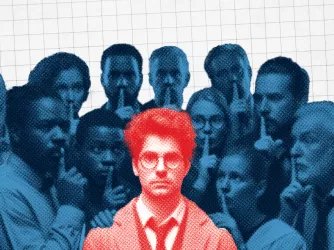Table of Contents
FIRE Debates at Penn: Does Hashtag Activism Work?

PHILADELPHIA, March 17, 2016—These days, a catchy tweet can launch an activism campaign, and everyone from politicians to grassroots advocates is engaging in “hashtag activism” to spread their message online.
But is social media activism really effective in the long run? While well-known campaigns like #BlackLivesMatter appear to have lasting influence, there’s debate over the effectiveness of others—remember #Kony2012? Is hashtag activism a meaningful vehicle for change in our 21st-century society, where social media has redefined how we communicate? Or does it only garner the public’s attention momentarily, without creating lasting change?
On Wednesday, March 23, at 7:00 p.m. EDT, the Foundation for Individual Rights in Education (FIRE) will host a debate on the motion “Hashtag activism garners attention but is not enough for outcomes” at the University of Pennsylvania. Presented in partnership with The Daily Pennsylvanian, the Oxford-style debate will take place in the Harrison Auditorium at the University of Pennsylvania’s Museum of Archeology and Anthropology and will be free and open to the public.
Free tickets are now available.
Zeynep Tufekci, an assistant professor at the University of North Carolina at Chapel Hill, will argue for the motion. Zellie Imani, an educator and community organizer, will argue against the motion.
For those unable to attend in person, the debate will be streamed live on
“Students often drive online activism, and we’ve seen clear examples of that in the past year,” said FIRE President and CEO Greg Lukianoff. “So having this debate on campus is timely and relevant. I hope students come away from the debate with a better understanding of the complexities of this topic.”
In addition to being a professor, Tufekci is a contributing opinion writer for The New York Times. She is a former programmer who now studies how technology and society interact. Her interest in politics, movements, data, and technology have led her to study social movements across the world, including in her native country, Turkey.
Imani is an educator, working as a math and English teacher and as a curriculum developer. Recently, Imani helped organize #NJShutItDown, a campaign to “destroy the systematic institution of oppression,” and co-founded the Black Liberation Collective, which launched the #StudentBlackOut movement across college campuses in the U.S. and Canada.
This is the third event in the FIRE Debates series. FIRE Debates was founded with the aim to demonstrate to students that free inquiry and open discussion serve an essential role in both education and democracy.
FIRE is a nonpartisan, nonprofit educational foundation that unites civil rights and civil liberties leaders, scholars, journalists, and public intellectuals from across the political and ideological spectrum on behalf of individual rights, freedom of expression, academic freedom, due process, and rights of conscience at our nation’s colleges and universities. FIRE’s efforts to preserve liberty on campuses across America can be viewed at thefire.org.
CONTACT:
Katie Barrows, Communications Coordinator, FIRE: 215-717-3473; katie@thefire.org
Recent Articles
FIRE’s award-winning Newsdesk covers the free speech news you need to stay informed.

FIRE SURVEY: Only 20% of university faculty say a conservative would fit in well in their department

BANNED WORDS: Iowa social studies teacher bans students from saying ‘Ohio,’ referencing the Holocaust

‘What Is Free Speech? The History of a Dangerous Idea’ – Major new book coming next year — First Amendment News 450
